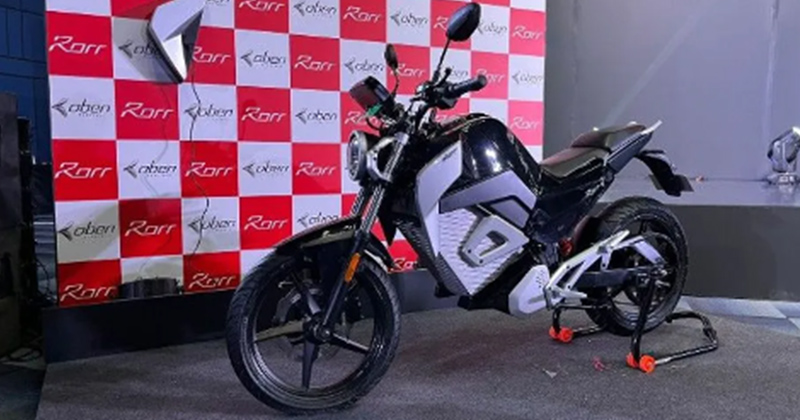- ALL
- TRENDING
- PERFORMANCE
- CHARGING
- BATTERY
- DESIGN
- TECH
- NEWS
Electric Motorcycles and the Shared Mobility Revolution

Table of Contents
Discover the future of transportation with electric motorcycles and how they are revolutionising mobility. Read our blog post on EVs and shared mobility.
With the boom of shared mobility, the transportation landscape across countries is witnessing a transformation of sorts. Increasingly, carpooling and e-hailing rides are emerging as a preferred mode of commute - a report suggests that shared rides have tripled in the past 4 years. The growing adoption of electric motorcycles is very much in sync with these shared mobility goals of reducing traffic congestion and decreasing emissions.
Offering a blend of efficiency, reduced emissions, and convenience, these sleek, eco-friendly machines herald a new chapter in the area of transportation. As congestion mounts and cities search for greener transit solutions, electric motorcycles promise a future in which mobility is shared and also sustainable.
E-bike and Shared Mobility Explained
Shared mobility, often called ride-sharing or bike-sharing, is a transportation model where users can access vehicles on a short-term basis.
You can use various apps to rent or book an electric motorcycleor taxifor short, one-time trips. Some apps even offer a subscription model, where you can own the vehicle on a weekly or monthly basis. With the primary need of getting from point A to point B fulfilled by this model, it can potentially lead to a decrease in vehicle ownership.
This on-demand and on-the-go solution has gained massive popularity in cities worldwide. With greater advocacy of e-bikes by policymakers and top market players, we can expect to see a huge portion of the shared mobility market dominated by electric vehicles in the coming years.
How Electric Motorcycles Further the Goals of Shared Mobility
The shared mobility model, upon integration with EV bikes, promises the following benefits:
1. Sustainable Transport
Electric motorcycles are known for their zero carbon emissions and reliance on renewable energy. If EVs are integrated into the shared mobility model, they can further encourage the move towards sustainable transportation. Not only will shared mobility decrease the number of vehicles on the street, but will also mitigate the negative impact of automobiles on the environment.
2. Cost-Effective
Traditional motorcycles require gasoline, regular oil changes, and frequent maintenance—costs that quickly add up. Battery bikes, however, are considerably cheaper with their reasonable operational and maintenance costs. Hence, incorporating e-bikes into a shared system presents a more economical alternative, reducing fares for customers and maintenance costs for shared mobility companies.
3. Easy Manoeuvrability
Electric motorcycles are admired for their agility - perfect for weaving through city streets chock-a-block with traffic. This agility improves commute times and minimises the hassle of getting stuck in a traffic snarl. Additionally, if more vehicles are replaced with shared e-bikes, street congestion will reduce.
Challenges and Opportunities
Just like any change in the world, the transition of battery bikes into shared mobility programmes is filled with challenges as well as opportunities:
Challenges:
● Adequate charging infrastructure and solar charging facilities are required.
● Maintenance of e-bikes against wear and tear and vandalism is a challenge.
Opportunities:
● E-bikes are barely at their developing stage, with better innovations possible in the future.
● Swappable batteries can reduce the charging hassle.
● Geo-fencing technology and tracking systems can deter theft and vandalism.
Government's Role in Promoting E-bike Sharing Programmes
A supportive government can be a firm backbone of an EV-integrated shared mobility programme. With adequate push and endorsement, more businesses can be encouraged to participate in this model.
Currently, the Indian government is encouraging the adoption of e-vehicles in the shared transport model. Reductions in electric bike pricesthrough subsidies and added tax benefits are encouraging EV businesses to innovate and the general masses to adopt sustainable transport.
Future Trends
If the electric bike market continues to grow at its current rate, our planet’s future appears to be greener, more sustainable, and technologically advanced:
1. Sustainability: Apart from relying on electricity, the future generation of shared motorcycles might also source their energy from 100% renewable sources. Solar-powered charging stations or wind-powered grids may soon be the norm.
2. Smart Integration: The future isn't about isolated transport modes but an interconnected web. Electric motorcycle sharing can integrate with other transit systems, ensuring seamless transfers, reduced traffic, and enhanced commuting experiences.
3. Advanced Tech: The tech world is buzzing with AI, IoT, and blockchain. Implementing these in shared e-motorcycle systems will result in smarter vehicles, enhanced security, and more efficient traffic control and parking.
4. Autonomous Electric Motorcycles: Self-driving technology is not limited to cars. In the future, we may also witness autonomous electric motorcycles that offer convenient, quick, and safe rides.
Parting Words
Electric motorcycles are leading the shared mobility revolution, offering a cleaner, cost-effective, and enjoyable way to get around urban landscapes. However, challenges like charging infrastructure and battery range need to be addressed. Government policies are, in that regard, critical in shaping the way forward.
Contribute to a greener future with the Oben Rorr. With this one-of-a-kind electric bike, you can expect the power and performance of a standard motorbike while enjoying the eco-friendly nature of zero-carbon emission e-bikes. It's time to embrace a greener, quieter, and more electrifying future with the Rorr.




